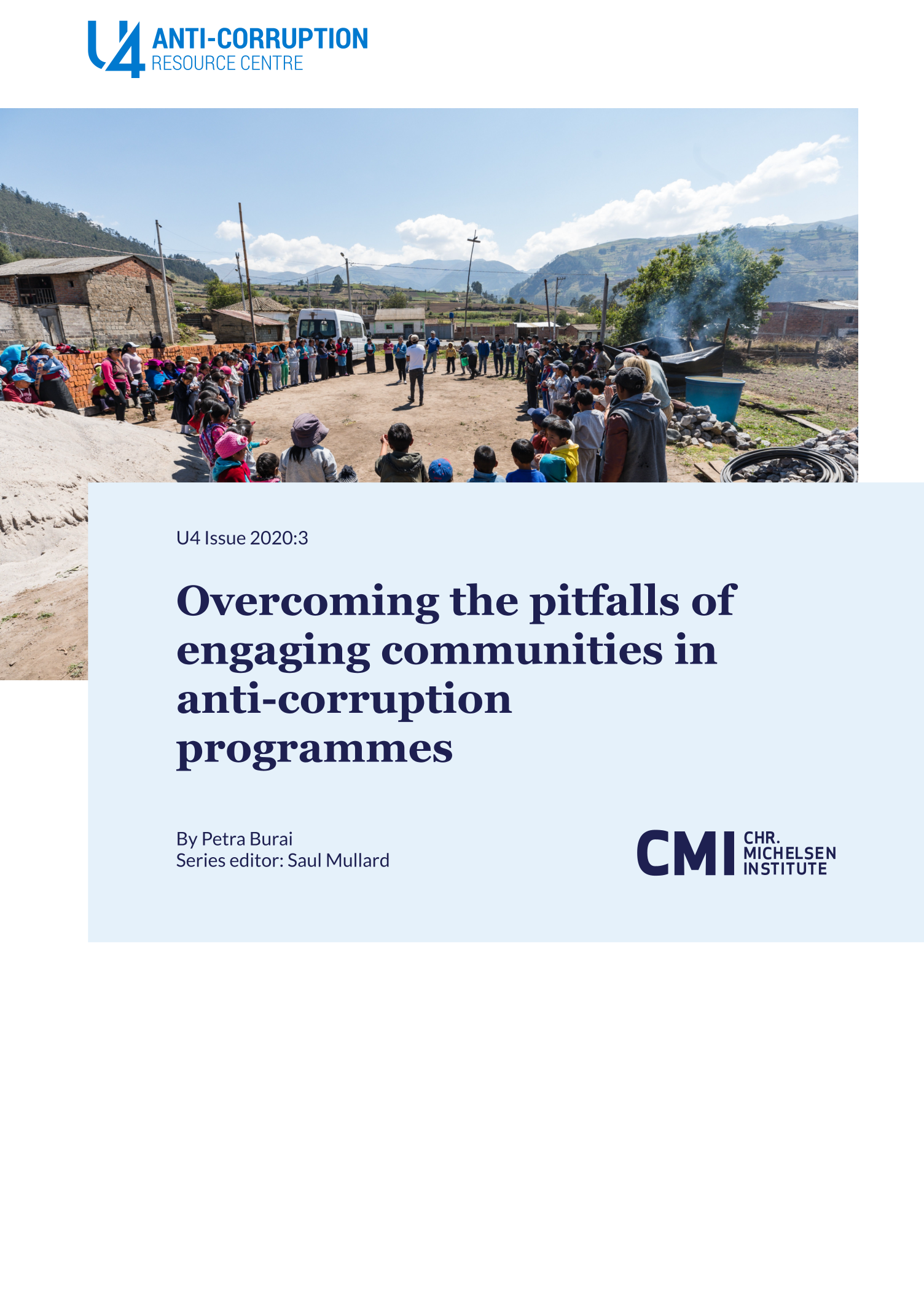Main points
- If elites, or powerful state or local leaders, exploit the existing legal and social order for their own benefits, corruption becomes one of the main threats to the rule of law. The expectations of communities regarding the benefits of anti-corruption policies decline if those who commit corrupt acts are not held accountable.
- If the views or perspectives of a community on corruption are disregarded, the success of initiatives to prevent it is impacted. Without focusing on how problems related to corruption affect people’s everyday lives, projects might be easily hindered.
- Being inclusive and integrating marginalised groups into anti-corruption projects is a successful way to prevent elite capture and establish balanced power relations. Organising strong, coherent, and supportive local power networks out of those who otherwise would have been barred from decision-making can concentrate capacities and influence.
- In community development programmes, communities are the ultimate beneficiaries of the outcomes. There is a significant potential in creating a community that works together upon shared identity and interests. Through coordination and a unified approach, they can achieve greater impact.
- In order to be successful, community engagement projects need to incorporate the building of trust at both interpersonal and institutional levels. Dialogue to co-create joint solutions and providing feedback on the impact of citizen input are crucial to maintaining trust and the willingness to engage.
